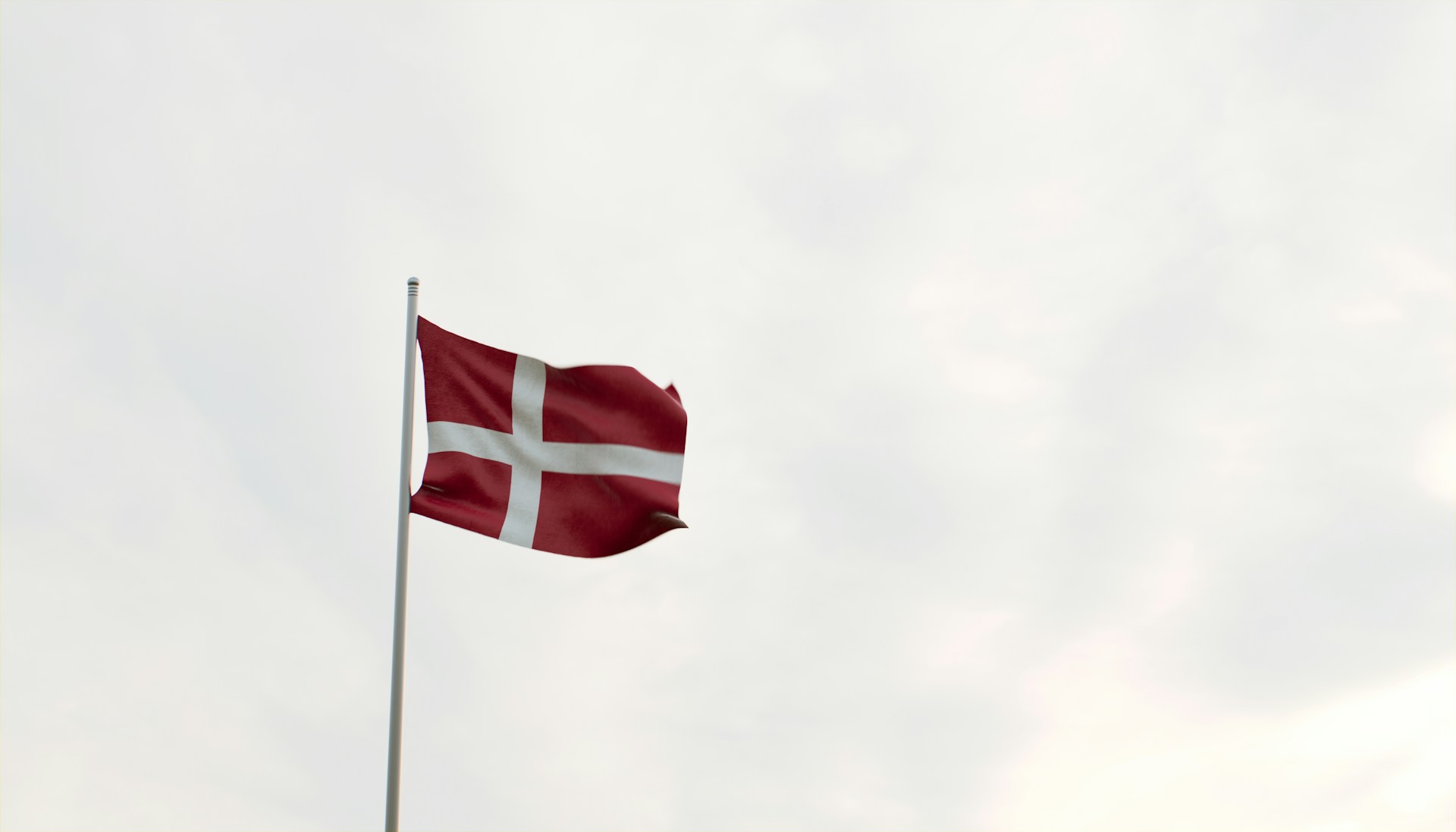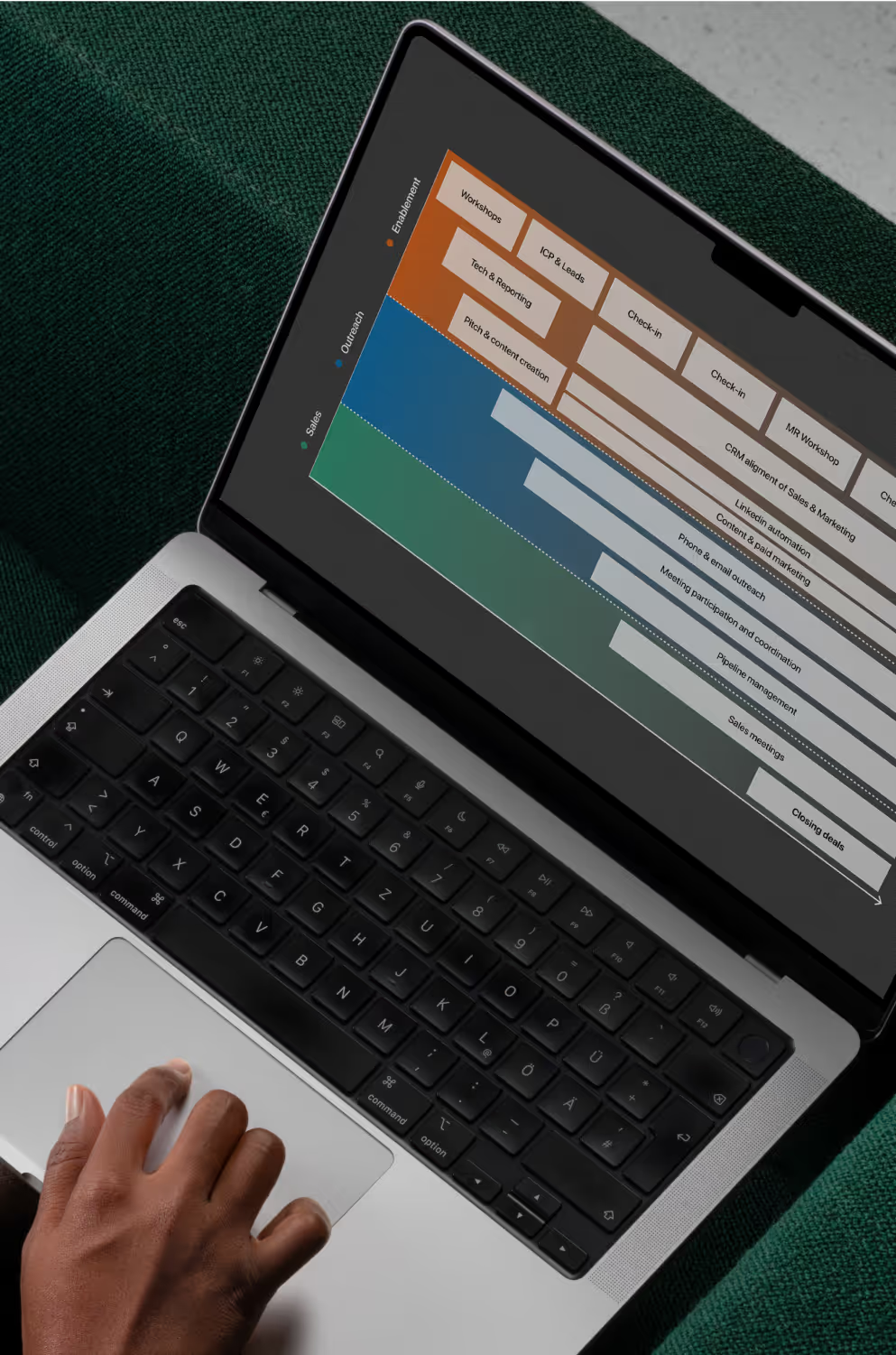How to Succeed With B2B Sales in Denmark: Insights From VAEKST’s CEO

How to Succeed With B2B Sales in Denmark: Insights From VAEKST’s CEO
Denmark may be one of the smallest Nordic markets, but it is one of the hardest to break and the most rewarding once you do. If you want to scale in the region, mastering B2B sales in Denmark becomes a strategic advantage.
To learn what really drives Danish decision making, we spoke with Mik Meisen Lokdam, CEO and co-founder of VAEKST, who has spent his entire career selling to the Danish market.
His insights reveal a culture that values precision, humility, usefulness and trust while being ready to move fast once these conditions are met.
This article blends Mik’s perspectives with a structured, strategic view of what actually drives commercial success in Denmark today.
The quick answer: What does it take to win B2B sales in Denmark?
You must think service rather than sales and be direct, honest and ready to show value fast.
Danish leaders dislike being “sold to” but they respond well to social proof and negotiation.
As Mik puts it:
“Danish decision-makers hate being sold to, but they love a good deal.”
1. Why Denmark is a high-potential market but not an easy one?
Denmark has a strong entrepreneurial ecosystem. Tech adoption is fast. Organisations move decisively. Budgets are available when the need is clear.
But openness does not mean easiness - danish buyers are sceptical by default. They expect substance without theatrics and they reward competence rather than charisma.
Mik frames it clearly:
“Compared to other Nordic countries like Sweden, I'd say we are the least "American" when it comes to sales philosophy an sales culture. Danish decision-makers are the hardest to book a meeting with, but if you get them in a room, they are also more likely to buy at speed.”
This is why a refined Go-To-Market approach matters more in Denmark than in many other Nordic and European markets.

2. How Danish customers think
Danish customers operate with a quiet but firm expectation: “Come prepared. Speak simply. Respect my time.”
They prefer an equal-footed dialogue, where the salesperson plays more of an advisor than a promoter.
What works well in Denmark:
- Straightforward explanations
- Two-way conversations
- Letting prospects talk more or equally to you
- Calm confidence
- Social proof from relevant Nordic companies
- Everyday language instead of jargon
Mik captures it in one line:
“Your job is first and foremost to listen and really understand the need before you try to pitch your solution. A sales meeting is like a friendly game of tennis, where you're trying to keep the ball in play."
3. Communication: clarity, humility and service
Great B2B sales in Denmark start with humility. Overconfidence is frowned upon. Aggressive selling backfires quickly. Even subtle exaggeration can create distance.
Mik warns:
“Drop the clichés. Danes spot ‘salesy’ language instantly and it turns them off. We are not nearly as welcoming as the Swedes.”
Instead, they want:
- A clear reason for outreach
- A simple explanation of the problem you believe they face
- A grounded solution framed in business outcomes
- Evidence to back it up
Service-minded behaviour signals respect, respect signals credibility and "credibility is the currency of sales".
4. Understanding the Danish decision maker
Different regions in Denmark respond differently to commercial outreach, although across the country, one truth holds: Danish leaders value clarity and substance.
Zealand:
More formal language and flashiness, easier to charm.
Jutland:
More direct and down-to-earth - avoid flashiness.
Mik describes the nuance well:
“Zealanders are abit more Americanised and uppaced, whereas people from Jutland wants it straight and are great businessmen."
5. The core challenge: building trust
Trust is the number one barrier in Denmark. It is also the biggest potential win. Danes are direct, but emotionally private. They do not open up easily. They expect you to earn the right to ask deeper questions.
Here Mik offers one of his reflections:
“As a "small" community, social proof means a lot. If you try to hard to be liked and don't have relevant customer cases, it will be an uphill battle. I recommend being genuine curios, bring something useful to the table and letting them talk about their desired future state.”
Trust is built through understanding eachother and having social proof.
6. Why relationships take time
A common misconception is that Danes take long to make decisions. The reality is different: they take long to trust, not to decide.
Mik puts it this way:
“Danes are tough at the door, but loyal once you’re inside.”
This dynamic rewards those who prepare well and stay consistent in their outbound sales efforts.
7. The Danish buying process is faster than you think
Unlike Sweden, where decision-making is flatter and often includes wide internal alignment, Danish companies typically involve fewer stakeholders.
This speeds up:
- Scoping
- Validation
- Negotiation
- Contracting
VAEKST data shows a 13% conversion rate from calling hours to meetings with top-tier Danish decision makers. Lower than Sweden, but with higher win potential once interest is established.
8. Why speaking Danish accelerates the sale
English works in Denmark, but Danish works better in the initial outreach phase. Speaking Danish immediately creates trust and reduces the perceived risk of an unknown caller. This is why many international companies partner with Danish-speaking B2B sales teams when executing their Go-to-Market strategy.
9. How to prepare for a Danish sales conversation
Preparation communicates respect and shows seriousness and competence - two qualities that Danes value deeply.
To prepare effectively:
- Understand the company’s strategic goals
- Identify likely pain points
- Clarify your reason for outreach
- Tailor your angle to the exact decision maker
- Be ready with one strong case example
Mik doesn’t sugarcoat it:
“If you don’t know their business, don’t bother calling. Danes expect you to do your homework, even for the first touchpoint.”
This level of preparation improves outcomes across your B2B Sales and Go-To-Market motion.
10. What this means for your commercial strategy
Succeeding with B2B sales in Denmark requires a blend of humility and relevance.
Your strategy should include:
- Sharp segmentation
- Personalised messaging
- Trusted social references
- Clear articulation of business outcomes
- Structured follow-up
- Danish-speaking outreach where possible
FAQ
Is Denmark a difficult B2B market?
Only if your message is unclear. Clarity and trust open doors fast.
Do Danish leaders prefer Danish or English?
English works, but Danish increases trust and conversion.
Are Danes more direct than other Nordics?
Yes. They prefer simple language and honest intent.
How fast is the Danish buying cycle?
Much faster once interest is established. Fewer stakeholders, quicker alignment.
What convinces Danish buyers?
Evidence, relevance, social proof and a strong understanding of their business reality.
Conclusion: Denmark rewards substance
Winning in Denmark is not about persuasion. It is about value, cultural intelligence and emotional awareness. Once credibility is established, the market opens and it opens fast.
Mik leaves us with a final thought:
“There’s no shortcut, but there is a right way and if you follow it, I could imagine Denmark being one of the most rewarding markets to sell into.”
If you want to accelerate your Danish market entry with a structured, insight-led approach, book a meeting with our experts.
Let's have a chat about your GTM
Have a virtual cup of coffee with one of our sales experts to explore collaboration opportunities.

